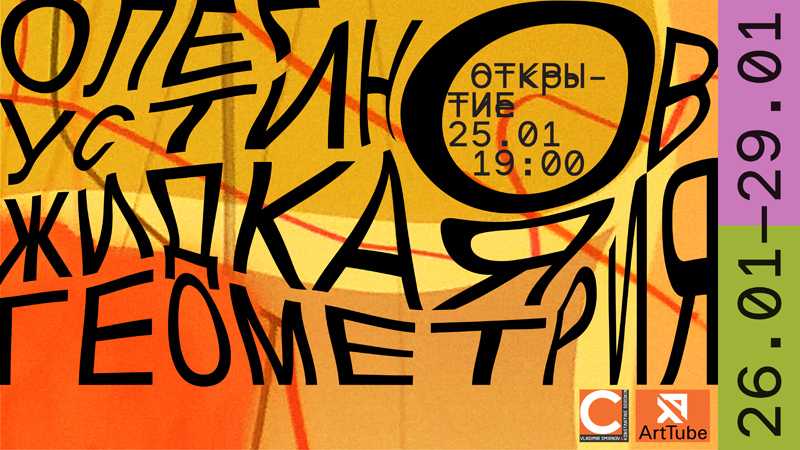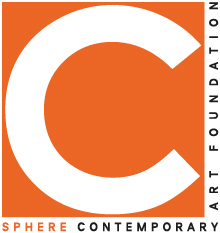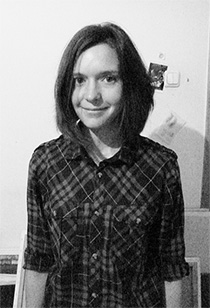
25.01.2018/ 19.00-22.00
Oleg Ustinov’s exhibition Liquid Geometry
Exhibition works from 26-29.01.2018, 12.00-22.00
Studio of the Foundation of Vladimir Smirnov and Konstantin Sorokin
Media partners: ArtTube
In his previous painting projects Oleg Ustinov used paper – leftovers from advertising manufacturing. The net with logos which covers it was reinterpreted by the artist as a new version of modernist railing, the elements of which were consistently filled with the traces of picturesque gestures: the author was “breaking the rhythm of the half-mute recycled materials”, building musical parallels and referring to his own background.
The deconstruction of the railing as well as the work with found materials seems to be continued in the new series Trypophobia Trips – a banner, covered with grommets, becomes the basis for painting. However, this time the hollow framework is made after a model by the artist himself, appealing to the construction of neural networks and corporate interaction. Trypophobia (an aversion to the sight of clusters of small holes) is used by Ustinov as one of seemingly exotic signs of the times. An accidental image in the news feed, the surface of a speaker, which is signaling about an unreplied message, or a missile strike map – all of these things can cause trypophobia. Putting on the same level tryphophobia and trips, which are assonants to each other, the artist appeals to psychedelic, “trip” possibilities of a painting on its path to becoming an object.
The second series, which gave the title to the exhibition Liquid Geometry, was meant to relieve tension inside the classical choice of abstract art – “expressionism or geometry”. Oleg Ustinov builds his own version of geometric abstraction, balancing between spontaneity and analysis, the machine-made and the man-made. The artist uses a multi-phase technology, one of the stages of which is printing above the graphic framework. Shifts of and discrepancies between the areas emerge as a result of the distortion of camera angle, preceding the creation of a model and particular features of the printing process. Three layers of the painting (painting, printing, and graphics), being in “liquid”, flexible relations, thus become the result of the redistribution of territories, the balance between the nominal and the real.

